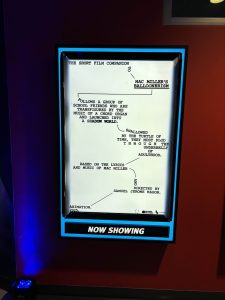Students react to the Mon Fayette Expressway
November 7, 2016
More than 70 percent of the student population at California University of Pennsylvania is comprised of commuters, many of which travel the Mon Fayette Expressway daily. Senator J. Barry Stout, Pennsylvania State Senator who was instrumental in the development of the Mon Fayette Expressway, died on October 29, 2016 at the age of 79. Sen. Stout considered his role in developing the Mon Fayette Expressway his greatest accomplishment.
The Mon Fayette Expressway is a 60-mile stretch of road connecting Interstate 68 near Morgantown, West Virginia to Interstate 376 near Monroeville. Sen. Stout encouraged the development of the Mon Fayette Expressway with hopes that it would allow young people access to a broader range of career opportunities, and it has done just that.
Cal U is conveniently located along the Mon Fayette Expressway, making the school more readily accessible to students from several surrounding counties, just as Sen. Stout had hoped it would. Current students may take their commutes along the Mon Fayette expressway for granted, but those who remember what it was like before the Expressway think students should be thankful. Stacey Yoskovich, a 1994 Cal U alumni, and current Cal U parent says she wishes the Expressway had been completed during her time at Cal U.
“I remember when the ‘new road’ as we called it, was a beginning work in progress. We didn’t even realize how beneficial one road could be,” said Yoskovich. “When I attended Cal U, most students lived on campus or in town because the commute felt like it took forever. The development of the Mon Fayette Expressway really helped to shrink our area of Southwestern Pennsylvania.”
Yoskovich’s daughter currently commutes to Cal U, and the drive that once took her mother almost an hour now takes about 30 minutes. Commuting was the best option for Yoskovich’s daughter, and the Mon Fayette Expressway’s convenient location has also made it possible for her daughter to maintain a part time job. Yoskovich said she had difficulty finding a job while she was attending Cal U because at the time it was not as easy for her to travel for work.
“I don’t know how many current students are even aware of Sen. Stout, but they should be very thankful for his contribution to their education,” said Yoskovich. “The development of the Mon Fayette Expressway has allowed students so much more flexibility in their schedules. My daughter is able to leave campus and arrive in Uniontown in 20 minutes, something I would have killed for while in school.”
Quick travel times are not the only thing commuters have to thank Sen. Stout for, but safety as well. Kelsey Basiorka, senior at Cal U, has been commuting for nearly four years,. Basiorka said that the part of her commute spent on the Mon Fayette Expressway is the most reliable, especially during the winter months.
“All of the other roads I travel to campus are back roads and they’re not always clear in the winter,” said Basiorka. “It’s nice knowing the Mon Fayette Expressway is usually cleared no matter what, it’s one less thing I have to worry about.”
Regardless of whether Cal U students knew anything about Sen. Stout or not, many of them use his most prized work daily. Sen. Stout’s goal was to broaden the spectrum of professional possibilities for young people, and the student’s at Cal U are benefiting from his work. Basiorka said that being able to easily commute to campus has saved her time, money, and stress, for the past four years.
“I’m thankful to have such a reliable route for my daily commute to class,” said Basiorka. “I regret saying that I had never heard of Sen. Stout until after his death but I’ve read some recent articles about him in the paper, and I can say firsthand that his work in developing the Mon Fayette Expressway has definitely benefited me.”





